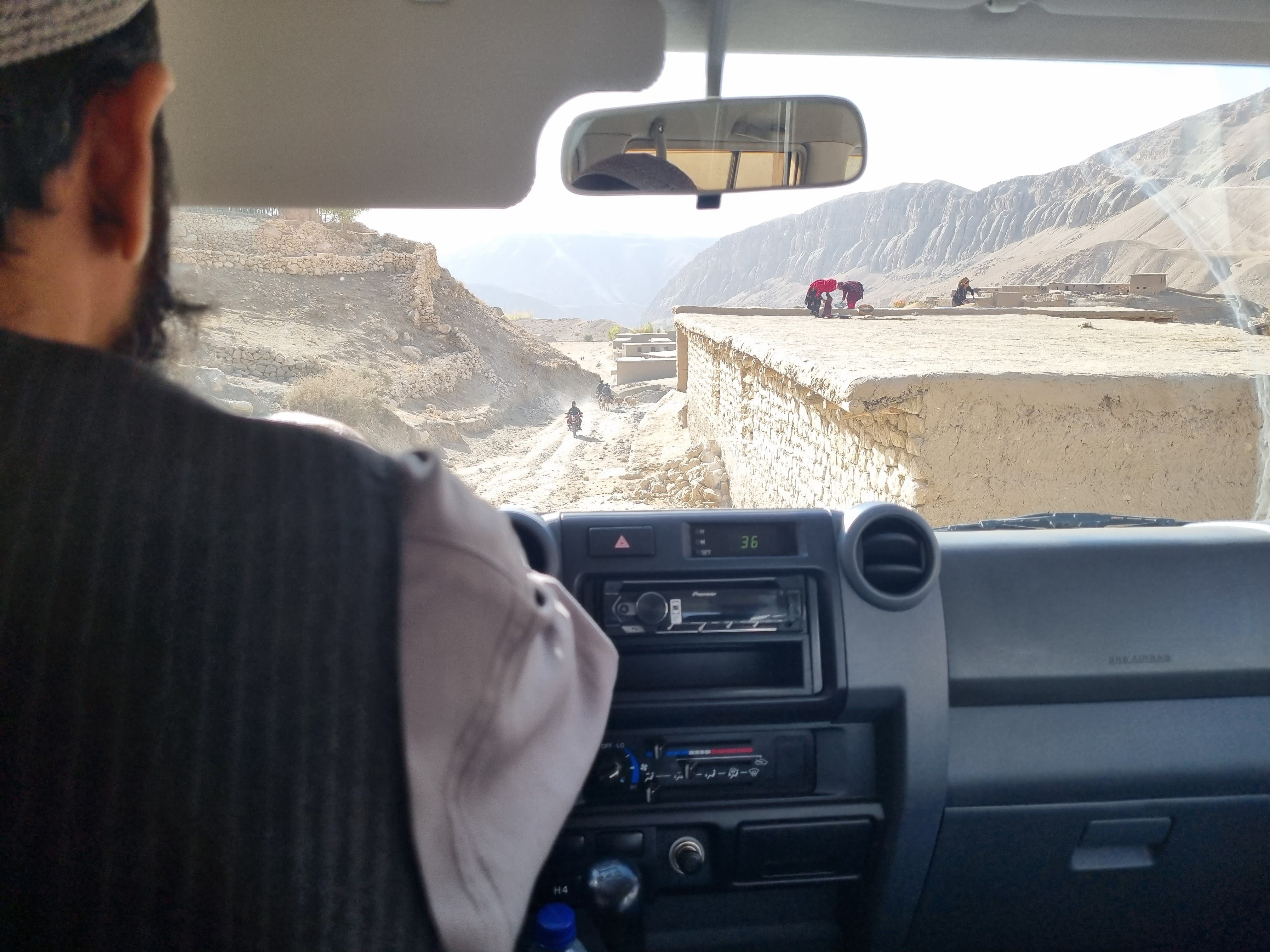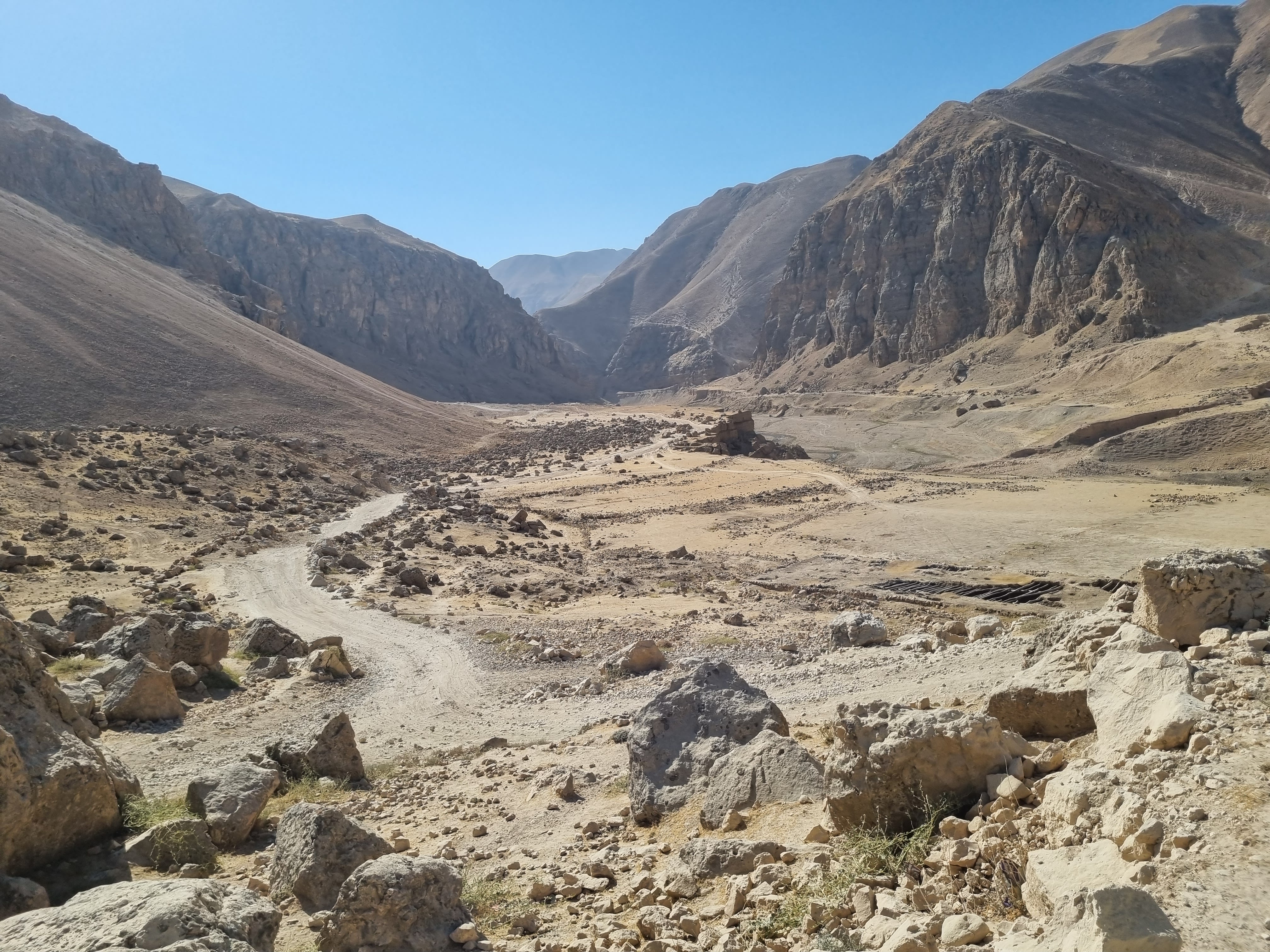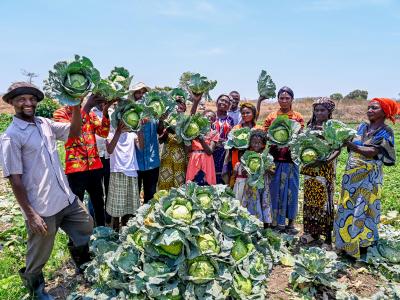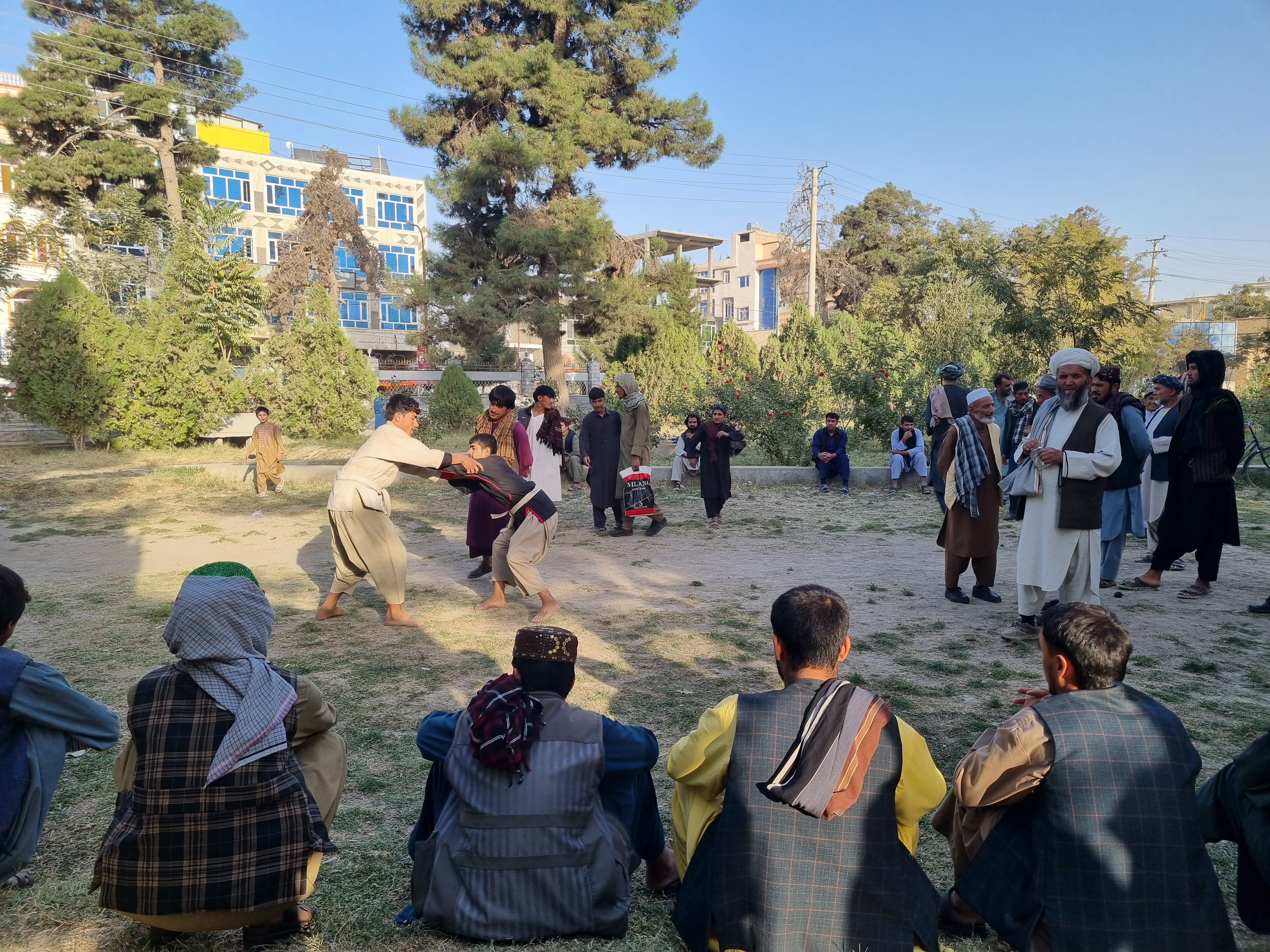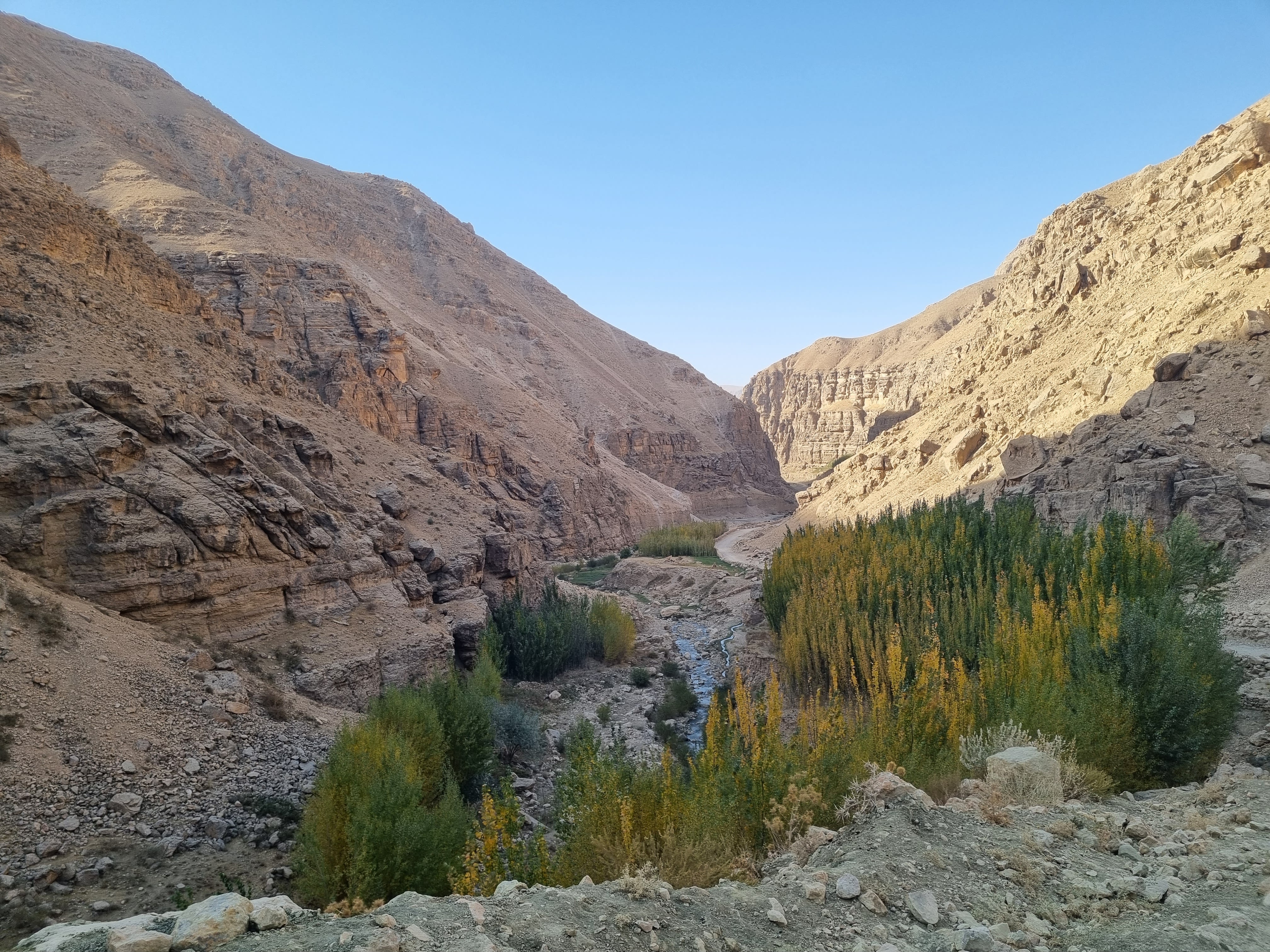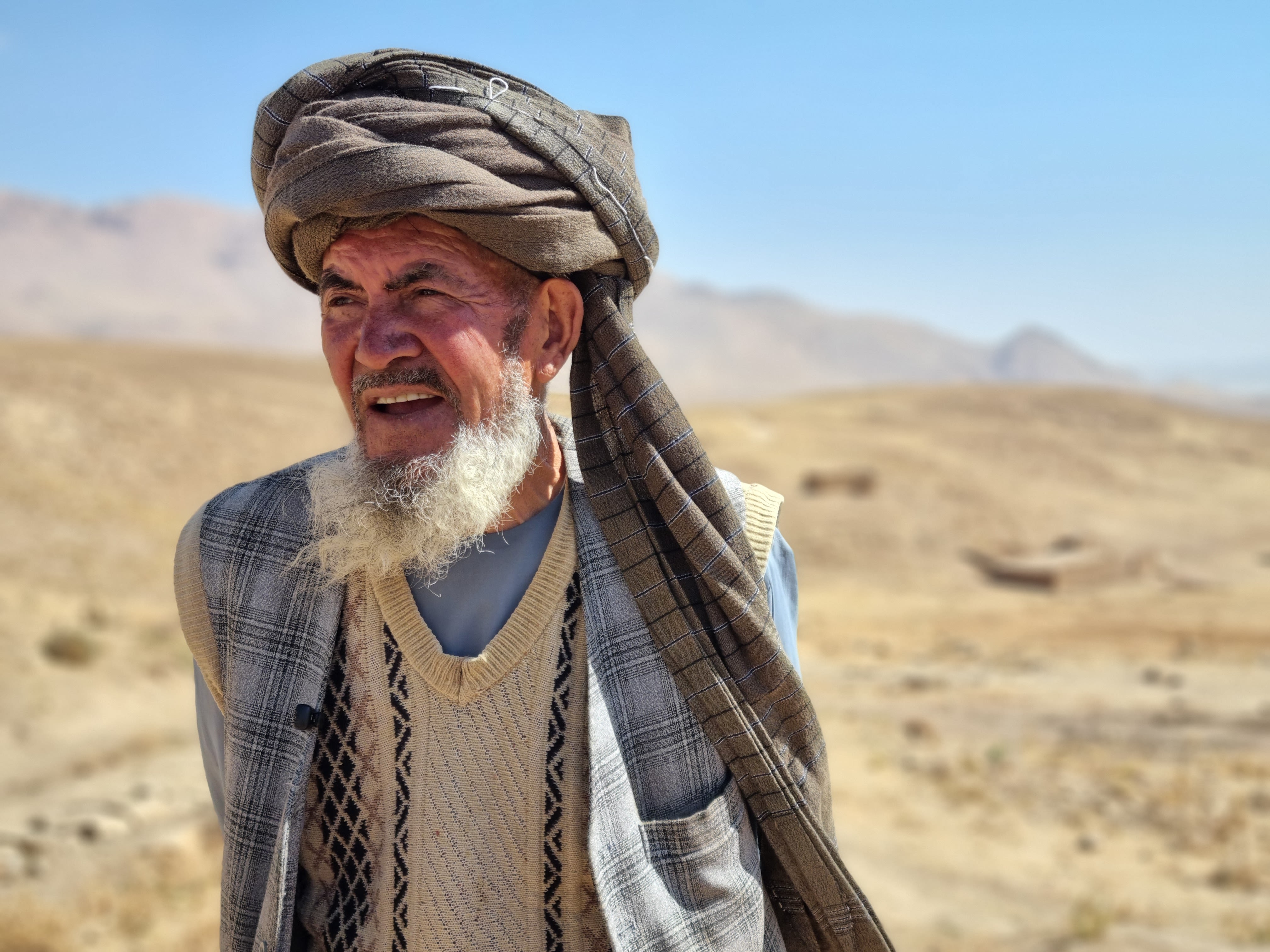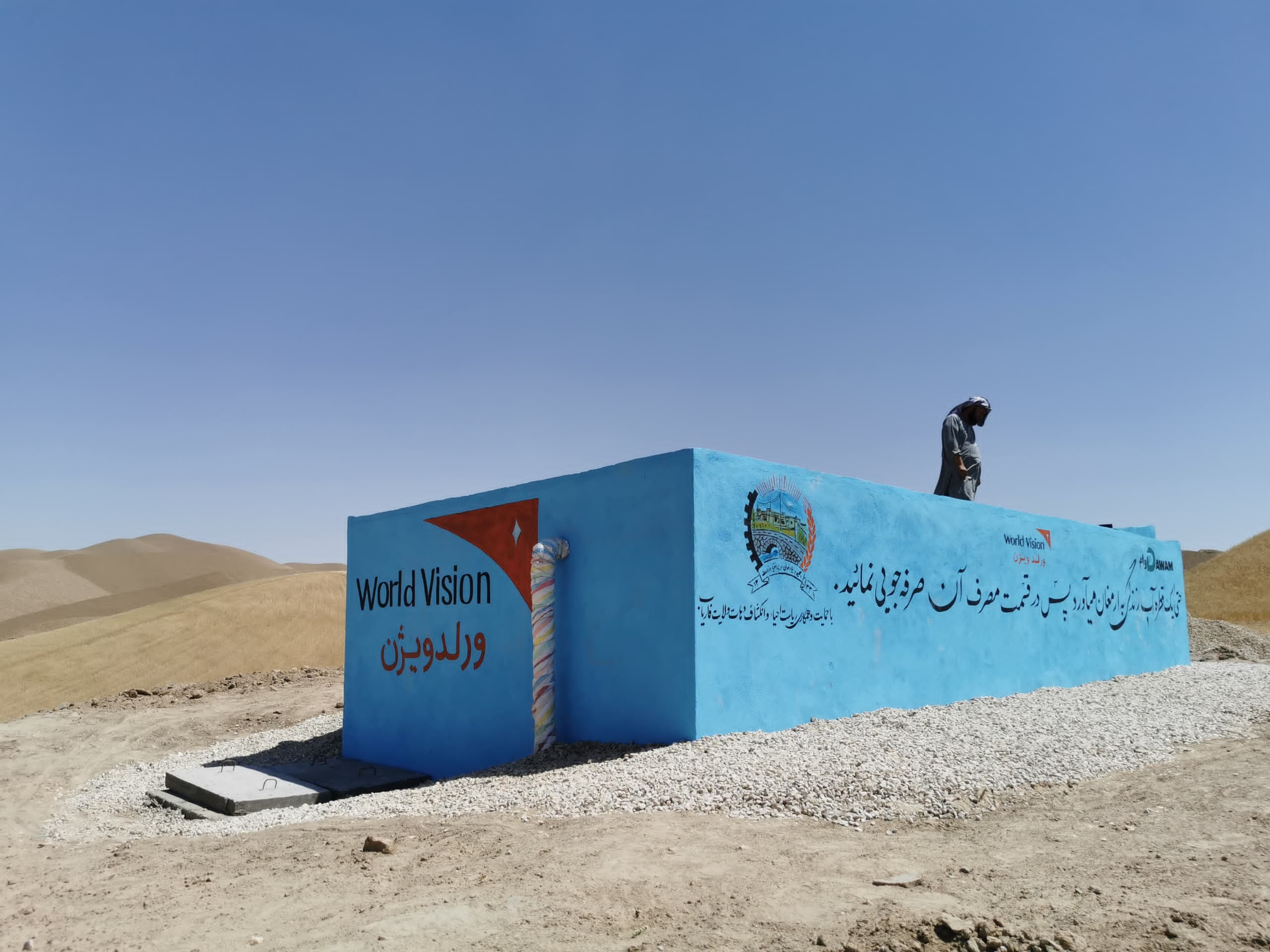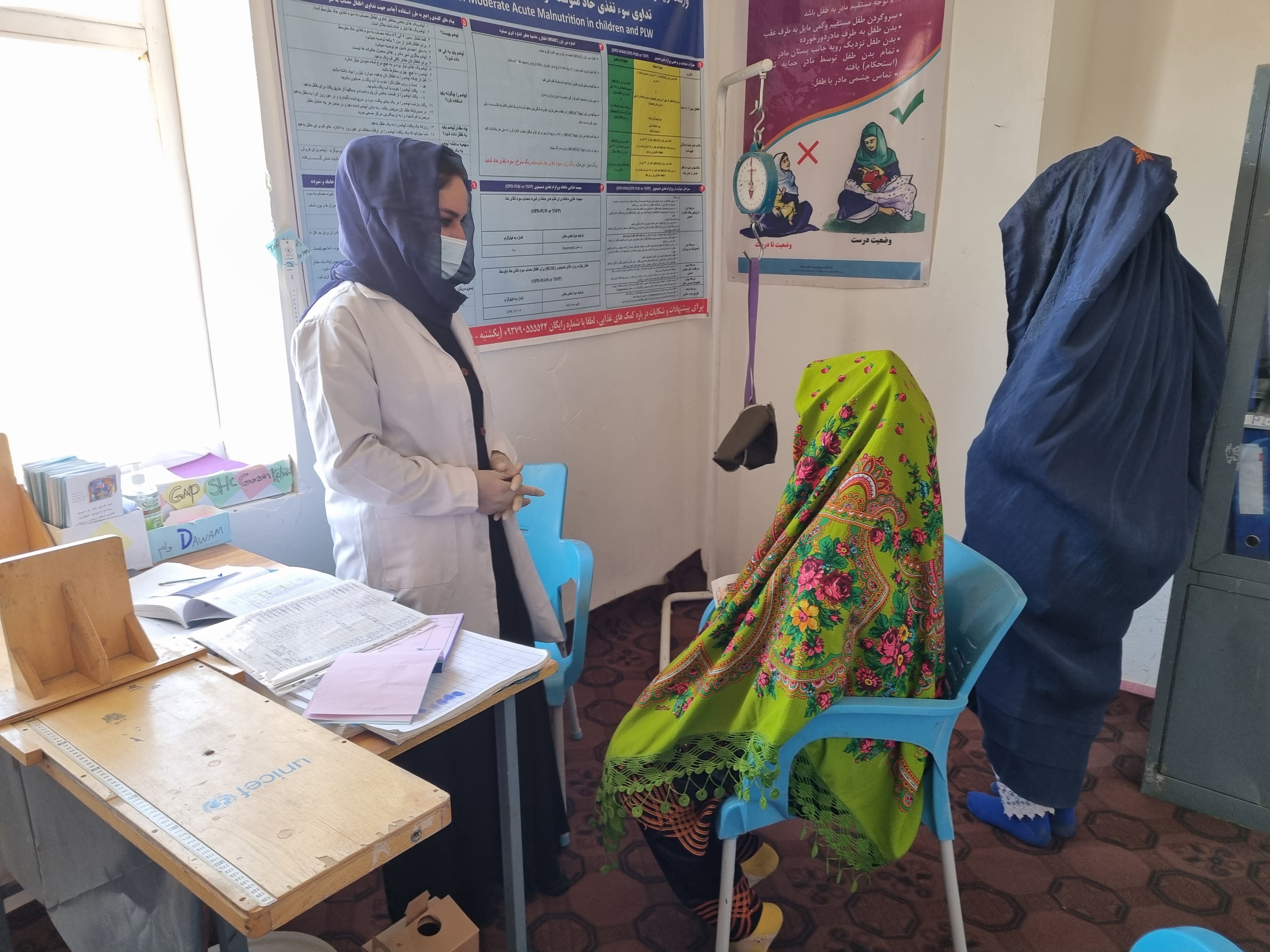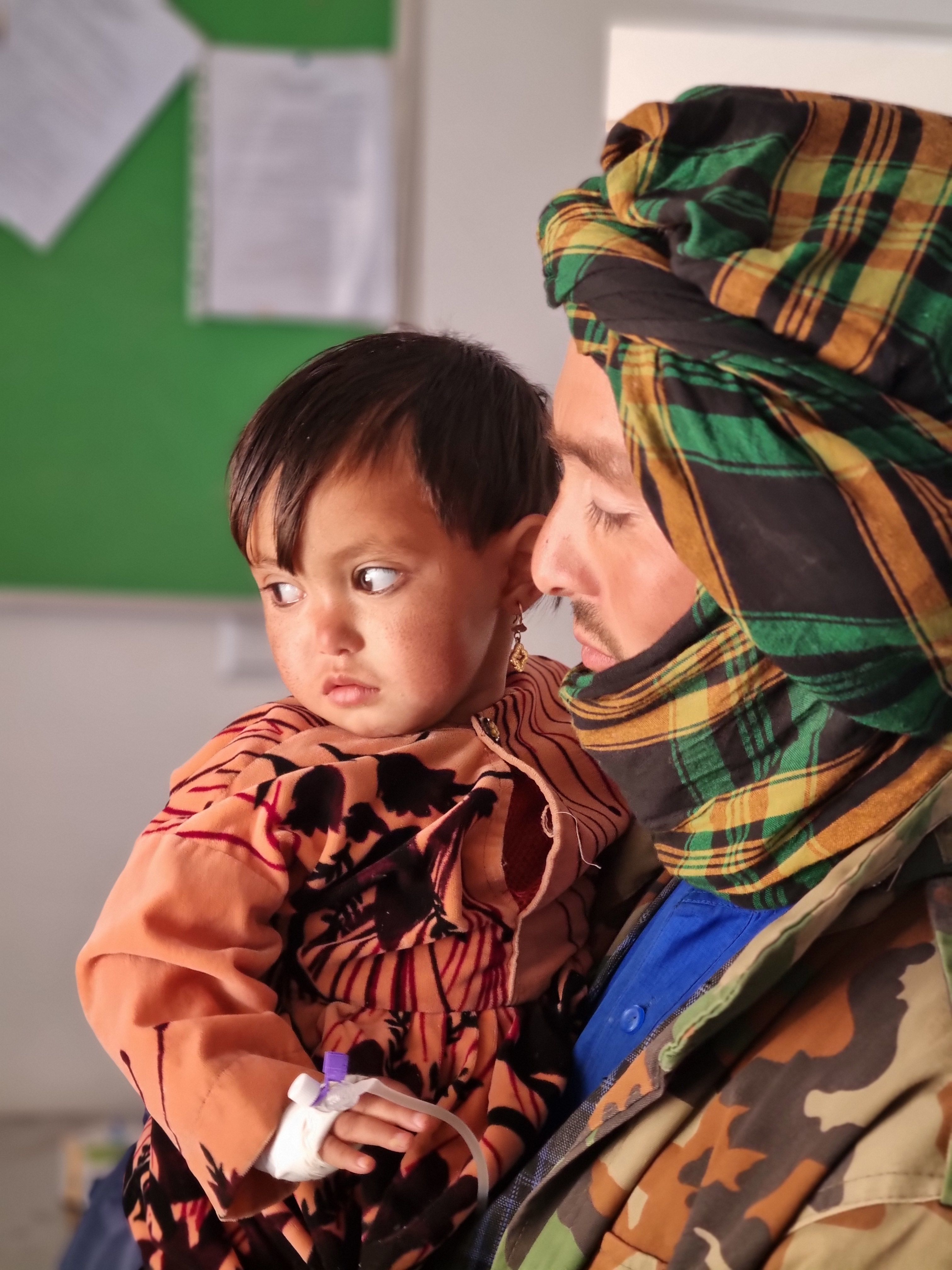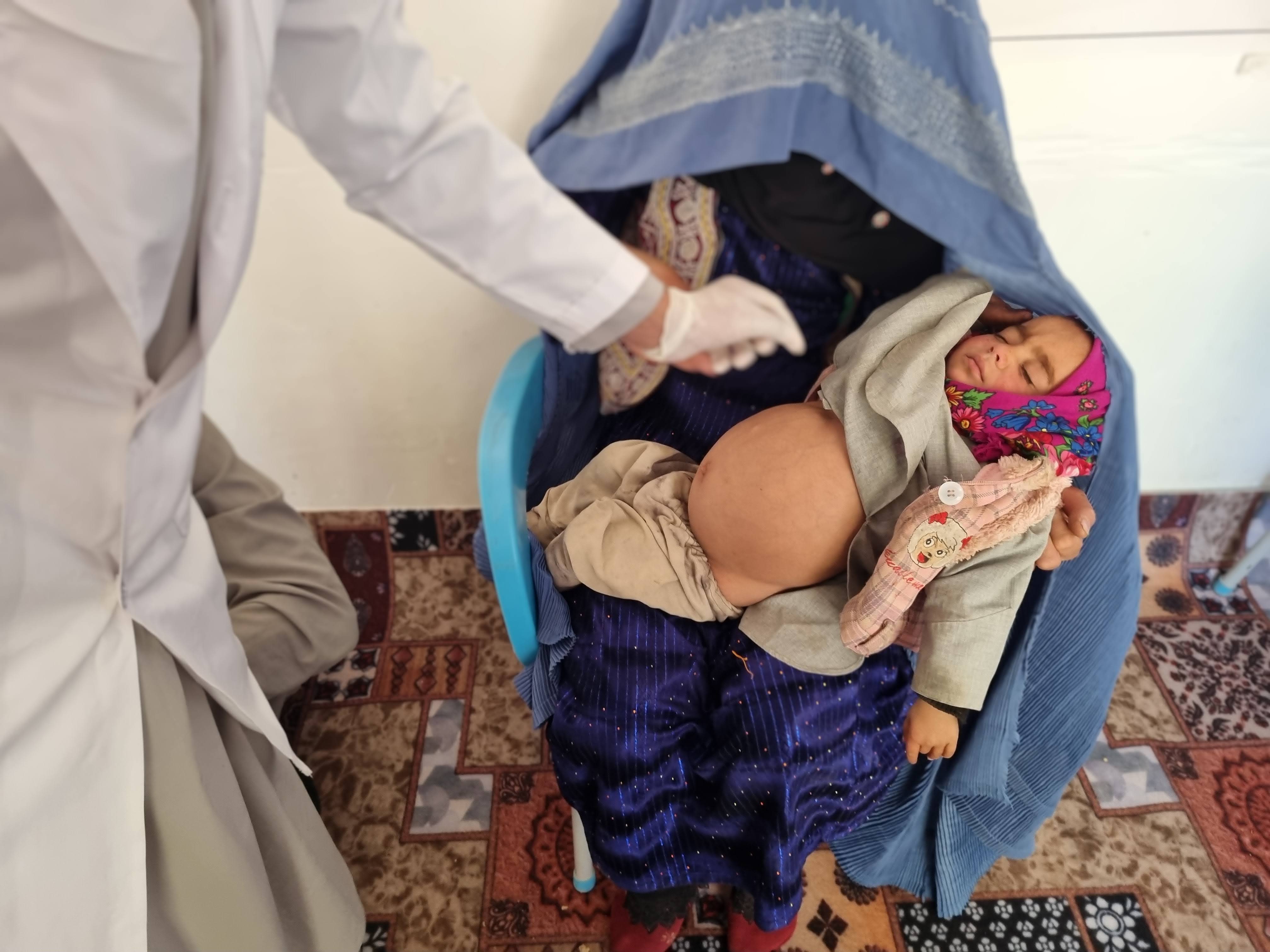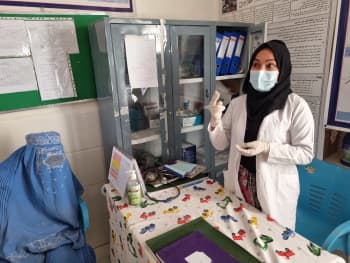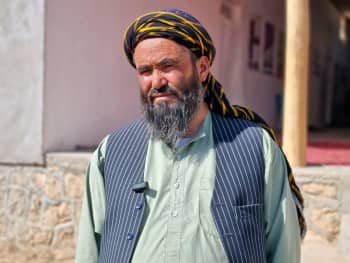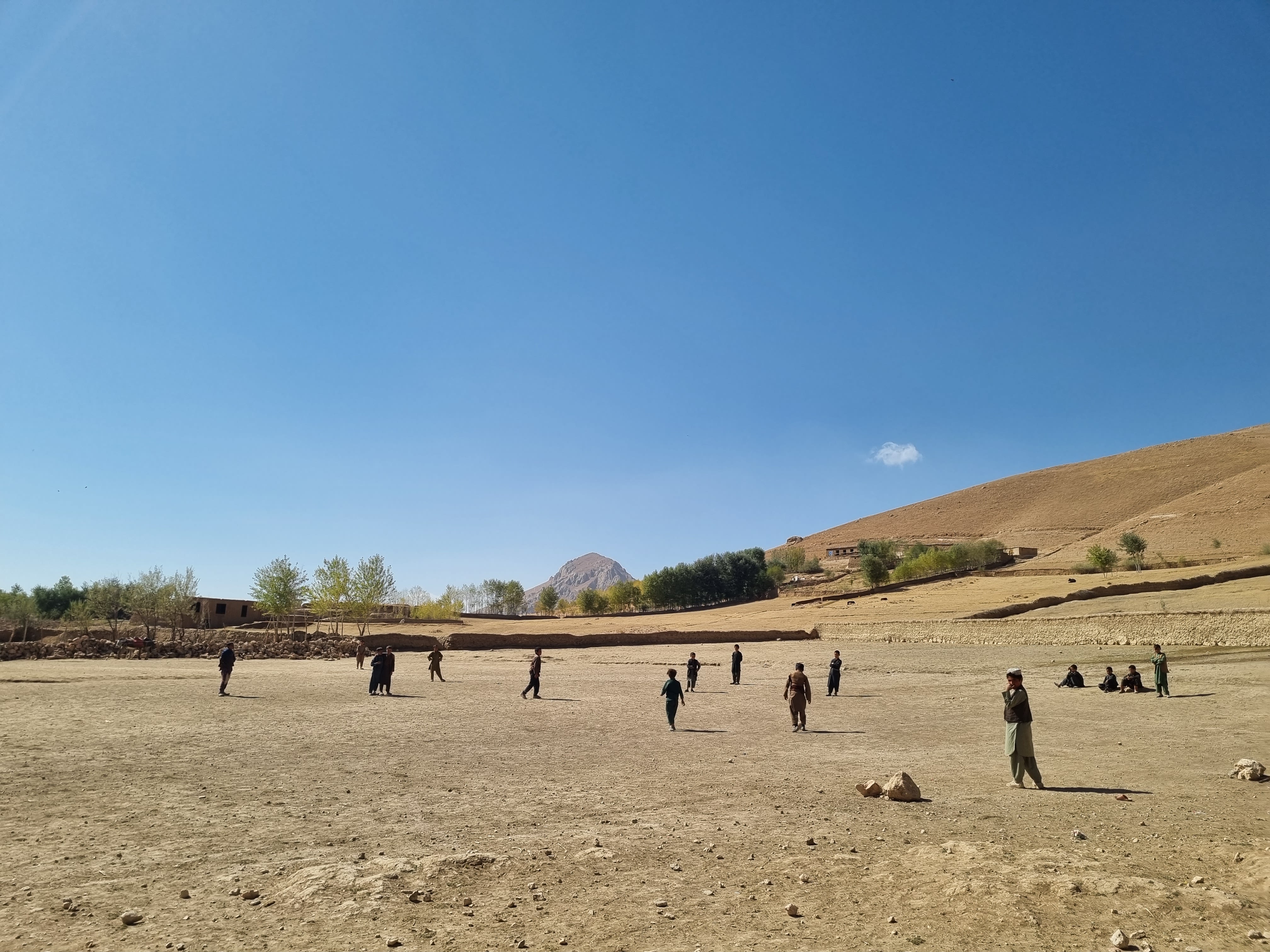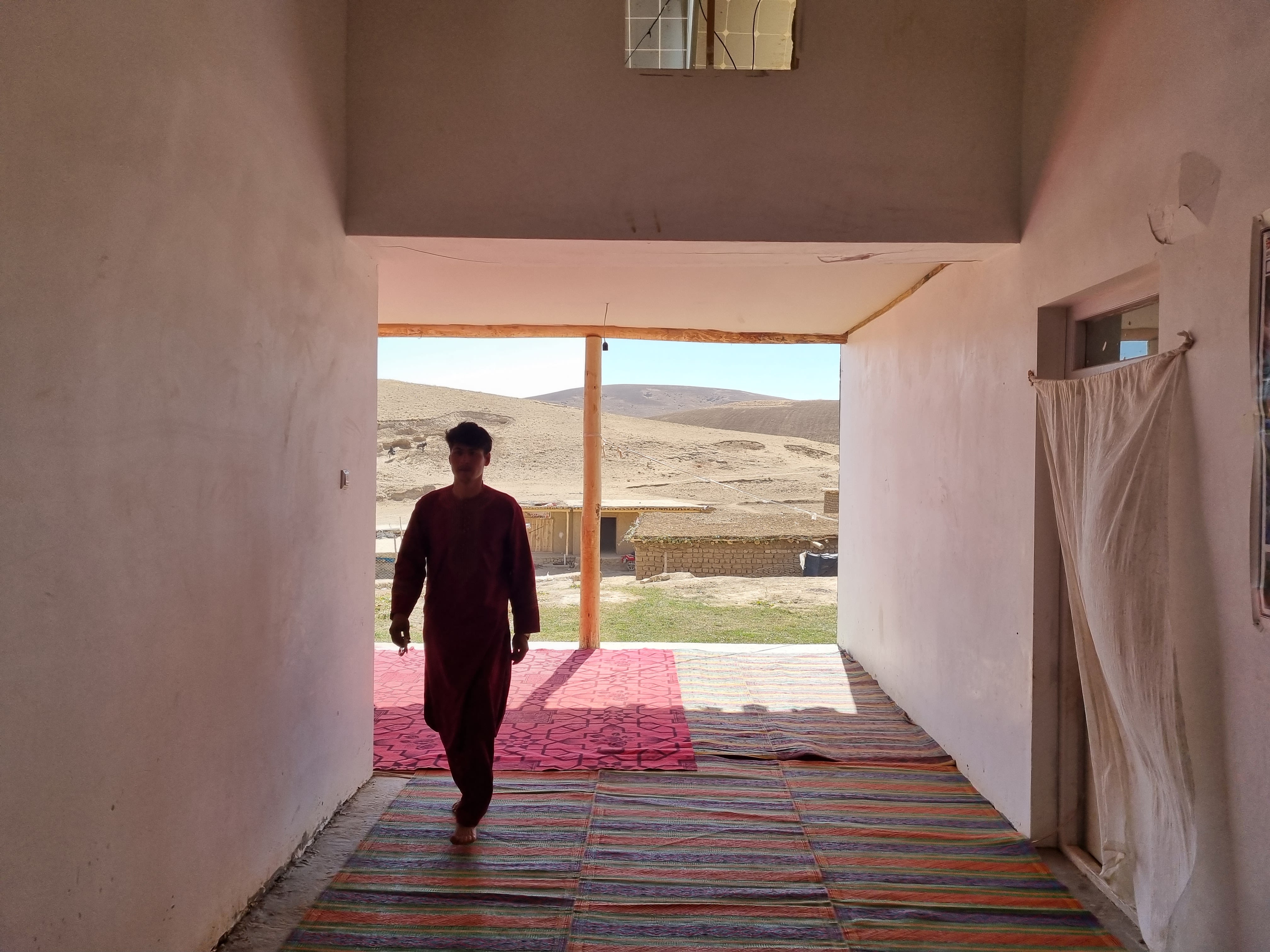Sustaining Life in a Drying Land
Sustaining Life in a
Drying Land
World Vision's healthcare and clean water provision amidst Afghanistan's 'two droughts'.
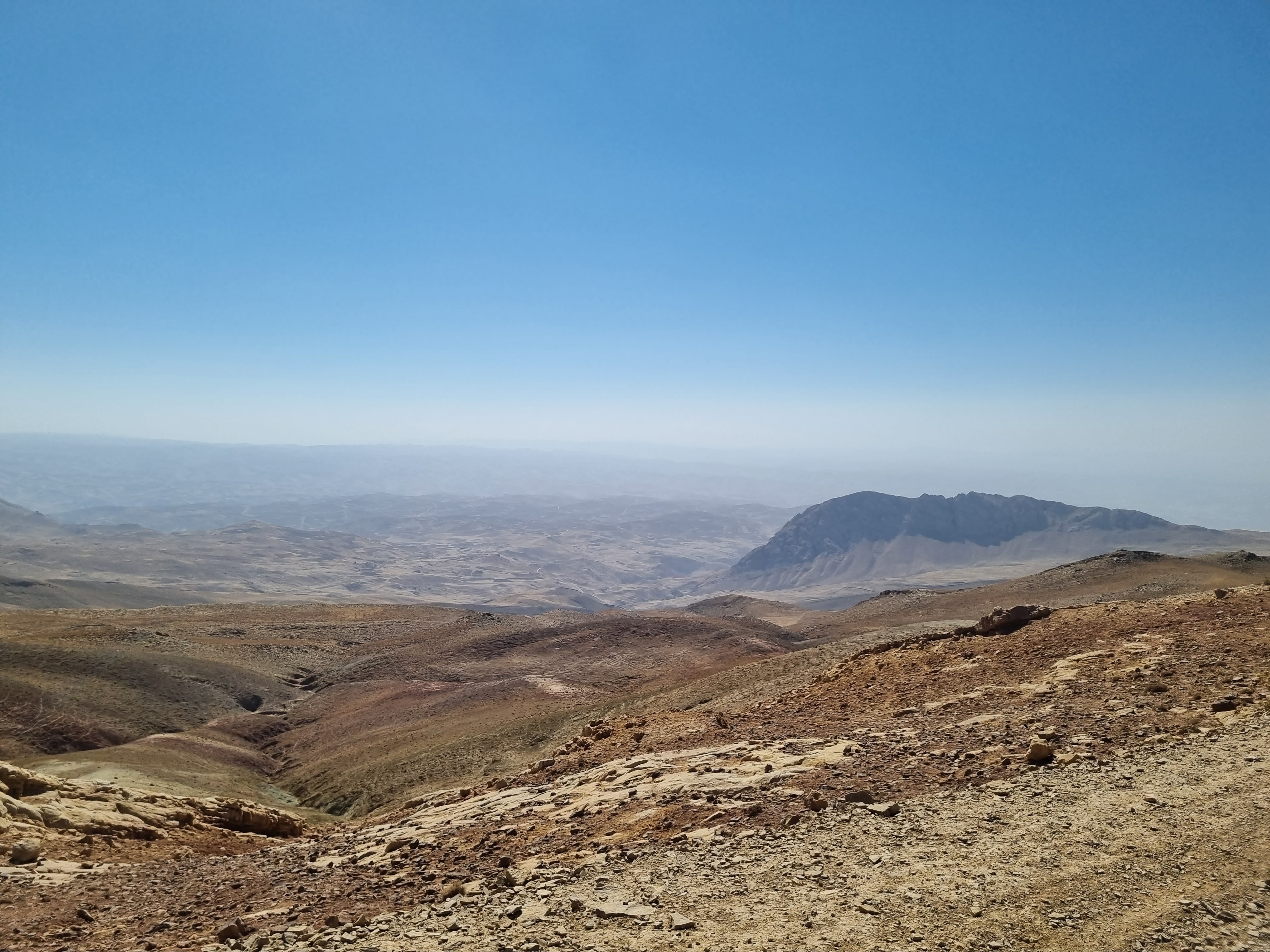
‘You’re going to Faryab?’ said my colleague, Hayat. ‘Make sure you eat Qardagh – they make it differently there.’
Hayat was quite right: the version of this roast mutton dish I tried in Maimana, Faryab’s capital, was quite distinct from those I’d had elsewhere in Afghanistan, served as it was in a kind of seasoned, marrow-rich gravy. A few days in Maimana (aided perhaps by the cancellation of travel plans due to a nationwide telecommunications blackout), enabled me to enjoy indulgent Faryabi rice dishes, clotted cream and yoghurt fresh from local pastoralists, and abundant nuts and fruit picked a few hours earlier, confirming for me Faryab’s reputation for being a breadbasket province.
Yet in the same province, people are running out of food. According to World Vision Afghanistan's Multisector Needs Assessment (MSNA), the region is heading into a winter of hardship and life-threatening hunger. Findings from the MSNA indicate that the entire province is already experiencing a high-severity agricultural emergency, and the mountainous district of Kohistan ranks at the very top. Food production has fallen by 81%, primarily due to drought and water scarcity.
When the blackout lifted, it was my chance to leave the city and make my way south from Maimana through Pashtun Kot district, climbing into the mountains of Kohistan on the border with both Ghor and Badghis. The journey takes five hours by unpaved and challenging roads, as long as the weather is dry and an off-road vehicle is available.
Men and boys enjoy traditional wrestling in the park, Maimana.
Boys participate in traditional wrestling in the park, Maimana.
The greenery of Pashtun Kot subsides as the road rises into the mountains of Kohistan.
The greenery of Pashtun Kot subsides as the road rises into the mountains of Kohistan.
The sound of countless frogs fills the air at a shallow reservoir in Pashtun Kot.
The sound of countless frogs fills the air at a shallow reservoir in Pashtun Kot.
We took with us a simple, satisfying breakfast of boiled eggs and bread, and broke our journey by a reservoir in Pashtun Kot district. I was puzzled by the din of what sounded like waterfowl, only to realise that the lake was bursting with countless frogs. This is unusual, apparently: the water level of this reservoir should be much higher at this time of year. And as we left the greenery around the reservoir behind us, the lingering taste of breakfast was soon replaced by the tang of cool dusty air at high altitude. Eventually, at around 3000 metres above sea level, we had a view of the surrounding valleys. With the exception of the pass through which we’d travelled, now far to the north, everything around us was brown when, I was told, it should be green. Up here there are no trees, and few crops.
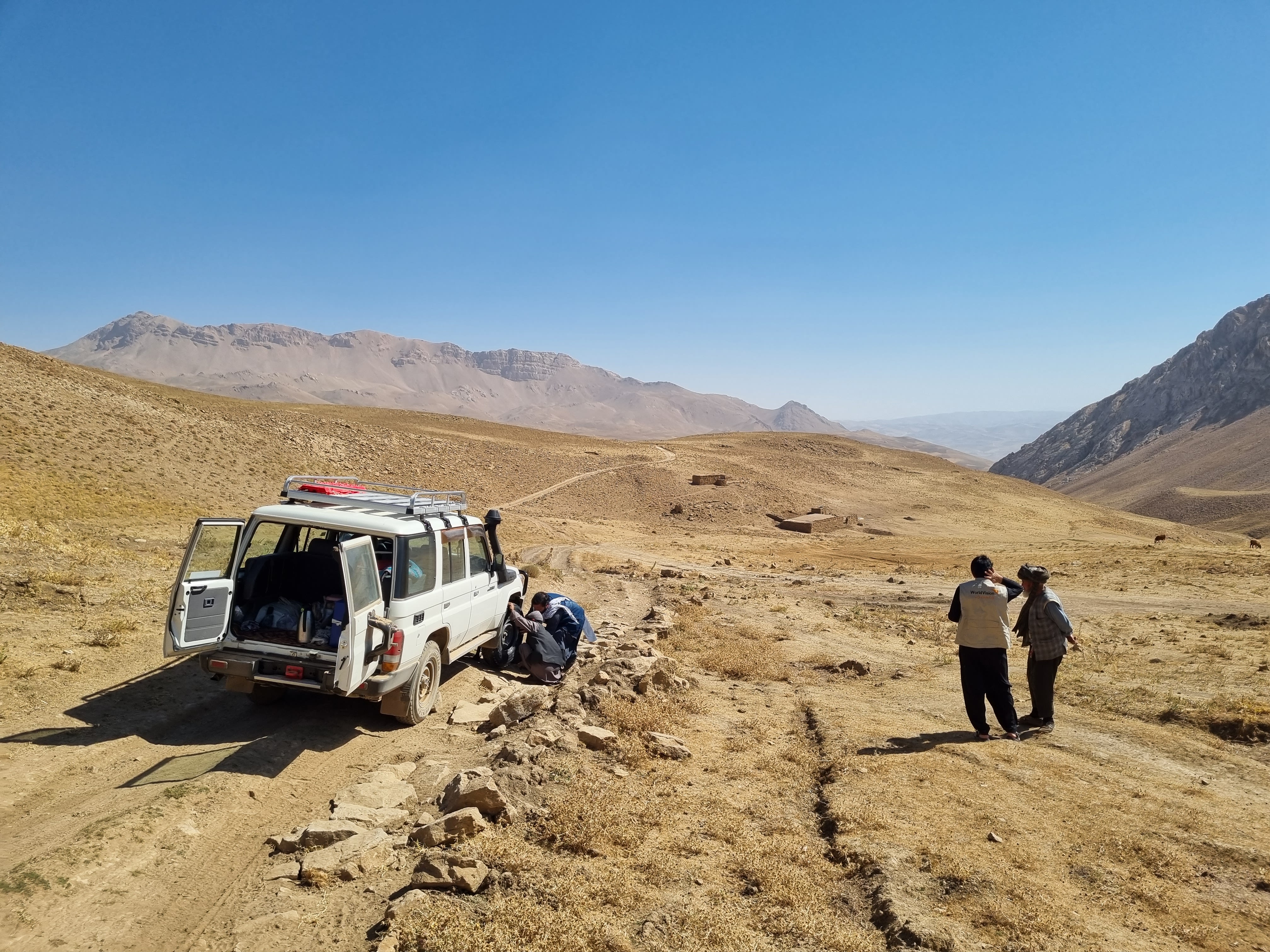
Having been in the only four-wheeled vehicle on the road for hours, perhaps it was inevitable that a puncture would halt our progress, as it did less than half an hour away from the village for which we were aiming. A passing goatherd came over to talk to us while we replaced our wheel. As someone with a few hundred head of livestock, he would be one of the wealthier people in the area, but he told us he’d lost a third of his flock due to the drought.
I asked him about the needs of communities in the district and he kept returning to the apparently insoluble problem of drought: the lack of crops, fodder and water for livestock, and the lack of any alternative livelihood.
"Without water", he said, "how can we live?"
A UK-funded clean water facility near Gorzan.
A UK-funded clean water facility near Gorzan.
Women and girls receive dedicated healthcare in Gorzan.
Women and girls receive dedicated healthcare in Gorzan.
Tyre replaced, we passed an installation funded by the UK via the World Vision-led DAWAM consortium, which supplies clean drinking water to the village of Gorzan. Parking outside the DAWAM health centre in Gorzan, we entered the calm and order of a small, mud-walled health centre, greeting two dozen or so anxious-faced community members gathered outside and in the waiting area.
This centre is providing outpatient, maternal health, nutrition and mental health support for this village of 500 families, and the surrounding area. Dr Hussein, who manages the centre and leads outpatient service delivery, told me,
“The challenges and problems in Kohistan are truly immense. On the one hand, there is poverty and illiteracy in the community; on the other hand, drought has made life even harder. Additionally, Kohistan’s remote location makes things more difficult — within six weeks, the roads might be blocked due to snowfall. My colleagues and I may not be able to return home for about four months, so we need to be fully prepared in every possible way for that period.”
The next room made Dr Hussein’s words painfully tangible. As we entered, a father held his daughter who was on a drip, recovering from dangerous diarrhoea. It had been caused by unclean water in their village two hours away by motorcycle, and left this little girl in need of uncomplicated but lifesaving care.
Then, minutes later, two parents entered with Najibullah*, a small boy with a greatly distended stomach.
The nurse in attendance told me this level of malnutrition was shocking at this time of year. The father, Abdurrahman*, explained his family’s circumstances.
“Our financial situation does not allow us to seek treatment for him in urban areas. I have come to this clinic in Gorzan, Kohistan District of Faryab, from Chaharsada District in Ghor Province. To reach here, we had to travel eight hours on foot using a donkey, as I do not have a motorcycle to bring them. I have brought my child here to receive medicine, and if this clinic did not exist, I would have been unable to do anything, as I could not afford to take him to the cities. Upon learning about the establishment of this clinic, I decided to bring him here. I have no income other than farming. Drought and resource shortages have ruined our crops, and our agricultural produce has been destroyed. We also lack access to clean drinking water and suffer from its absence.”
A man with his daughter receiving treatment for malnutrition in Gorzan.
A man with his daughter receiving treatment for malnutrition in Gorzan.
Najibullah* travelled for eight hours with his mother on the back of a donkey, while his father Abdurrahman walked alongside.
Najibullah* travelled for eight hours with his mother on the back of a donkey, while his father Abdurrahman walked alongside.
The effects of drought are driving people like Abdurahman and his
Sayed Abid of the local Gorzan Shura Council, tells me, “Before the establishment of this clinic, there was no health facility in the area, and residents faced numerous challenges. The rates of child and maternal mortality were very high, and people could not easily access healthcare services, as the district centre is far away and difficult to reach. With the establishment of this clinic by World Vision… many of their health challenges have been reduced. [However] the severe drought has badly affected their lives. Most of the residents are farmers and depend on agriculture, but this year neither the wheat produced any yield nor was there grass for the livestock. Many animals have already perished, and the remaining ones are at risk of dying as well. There is unemployment, travelling to Iran has been closed for the people, and there are no jobs or work opportunities here either. In terms of agriculture and economy, people have suffered in every aspect. Most of the women and children in this area are highly vulnerable and have been the ones most affected.”
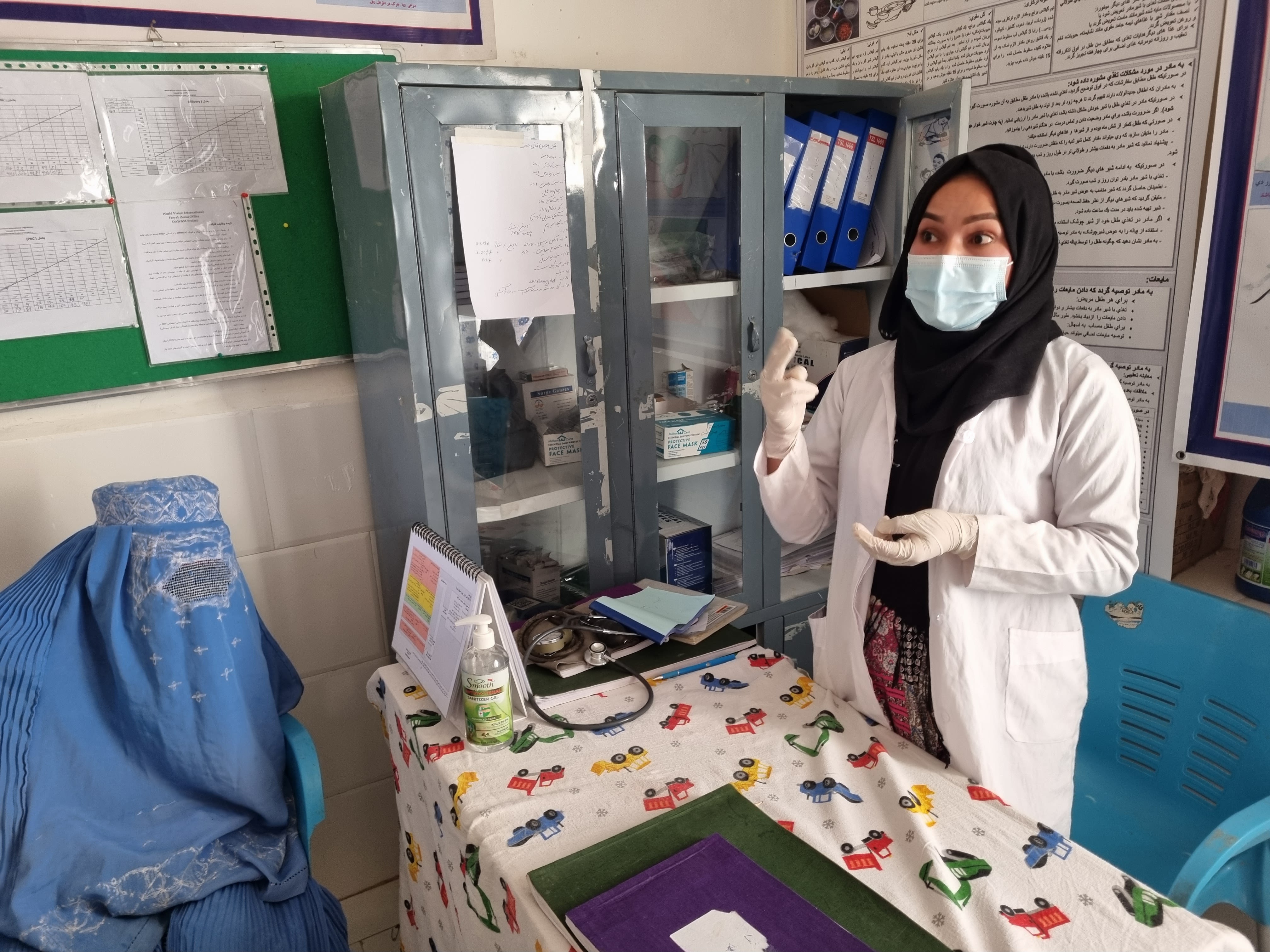
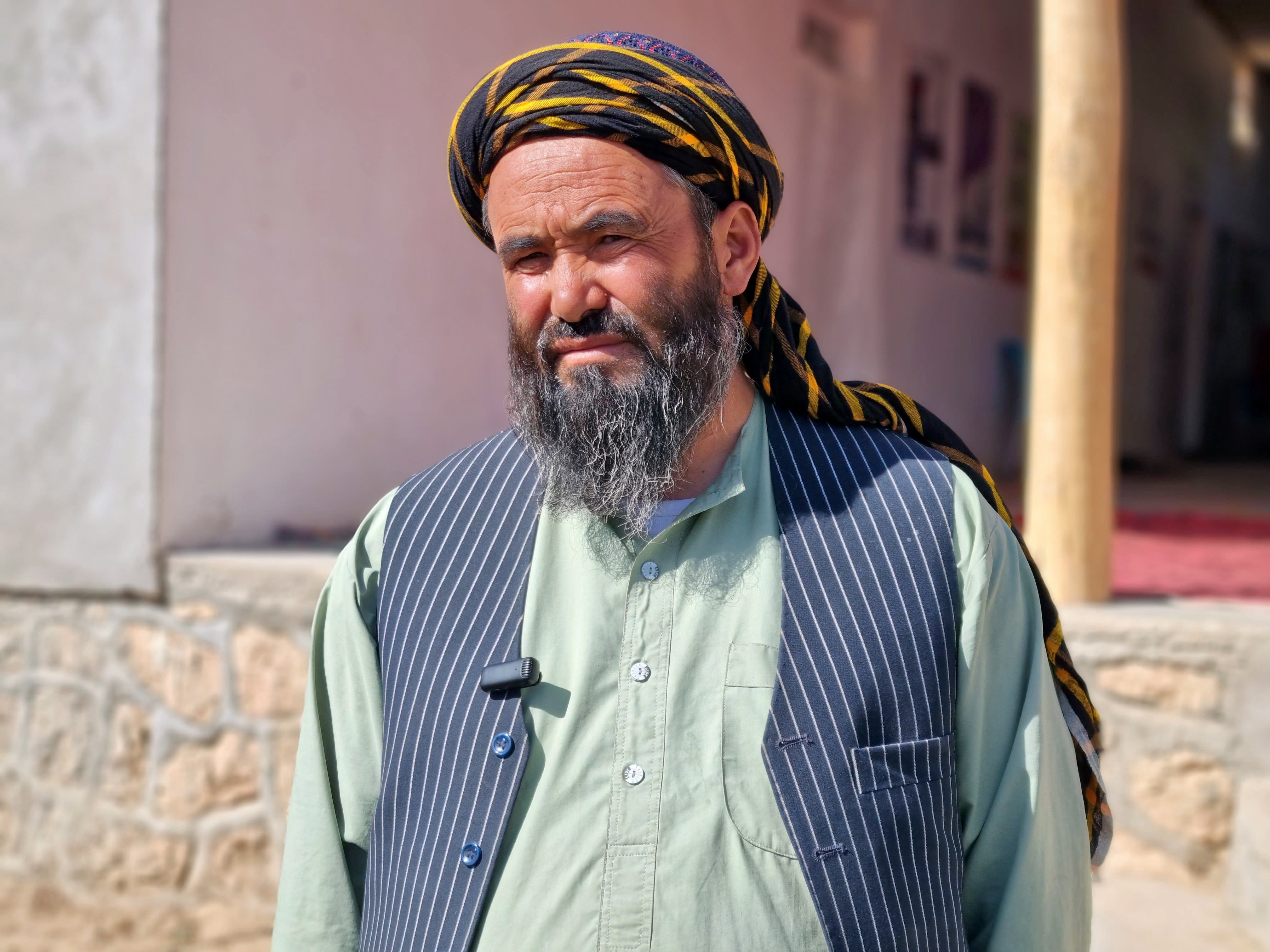
The clinic, then, with clean water provision complementing its services and driving down ill-health, is a very literal lifeline, not only for families but, perhaps, for the existence of rural communities such as Gorzan. Families dwelling in remote communities are used to living in equilibrium with the land, but with climate change-related shocks occurring more frequently and with greater intensity, there is an urgent need for basic service provision to support their ability to withstand such shocks, without resorting to migration to the city, or outside of the country. Even with forced returns, some are still attempting to enter Iran because the risk seems worthwhile against destitution in rural desolation.
Boys playing football near the health centre in Gorzan.
Boys playing football near the health centre in Gorzan.
Gorzan health centre
Gorzan health centre
Yet the other drought Afghanistan faces is the drying up of funding to Afghan and international NGOs. Afghanistan is entering its first winter in years without largescale support for food security due to dwindling donor support and sudden aid cuts in the past year. The shock of funding being withdrawn midway through programmes underlined a troubling fact: many in the international community are wearying of Afghanistan, even as investments, such as the UK-funded water, health and nutrition services in Gormach, and many other places, are bearing fruit. The legacy of conflict leaves infrastructure inadequate to support basic needs provision across the country, while climate impacts disrupt well-established human-environment relations. Meanwhile, the authorities remain unrecognised by almost all countries globally, making engagement for development even more complicated.
However, for children like Najibullah, impossibly far from the localised abundance of Maimana, engagement for lifesaving and longer-term support is the difference between a meal and hunger, between the provision of a clinic’s lifesaving drip and deadly sickness, and between dependence on aid and long-term wellbeing. Najibullah cannot wait for the resolution of all of the country's political challenges, either for his next nutritious meal or for the investment that will give his generation a better chance of thriving than his hard-pressed parents had.
Mark Calder is Director of Advocacy, Policy and Communications for World Vision Afghanistan.
